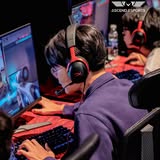Rethinking how confidence, focus, and collaboration skills develop in children is now being considered by parents and educators. With games becoming more popular, people ask whether playing digitally is as helpful for children as playing sports offline. For a long time, taking part in sports taught discipline and leadership, but today, online competitions focus more on using the mind quickly, logically, and effectively for communication. Explaining different cultures is not only needed now, but it’s essential to develop balanced learners. What life skills can be supported through Esports Classes is really the key question.
Exploring Life Skills Through Competitive Activities
Esports, like traditional sports, require planning, teamwork, responsible time management, and determination. What changes is the approach and environment for learning these skills. Let’s assess each activity using the most vital life skill categories for personal development and being ready for the future.
Emotional Regulation: Learning to Win and Lose with Grace
Having emotional control helps a lot, no matter if you’re playing a national finals game or dealing with a last-minute setback in an esports tournament. In traditional sports, you must respond to referees and supporters, as well as teammates, who are nearby. Managing through adversity in person helps you to become more resilient right away.
Although the competition is more subtle in quiet environments, the pressure is still as great for esports competitors. While playing online, you meet unexpected players, need to make quick plans, and have your results displayed on leaderboards. Not having physical support while dealing with loss can teach someone to develop their way of coping. Both disciplines push individuals to think, change, and act again, which helps them get better at managing their emotions.
Teamwork: Physical Proximity vs Digital Communication
In traditional sports, people must coordinate their actions with words and body movements, for example, passing and reorganizing in soccer and basketball. Paying attention to how players move together improves everyone’s social abilities and team bonding.
Still, success in esports depends on talking over headsets and making quick commands. Players use online tools to organize themselves, learning how to tell each other what they are doing without visually showing it. As a result, people improve their listening abilities and can explain themselves clearly, which matters when working remotely. Dynamic play is different in the two modes, yet structured teamwork and choices are an important part of both competitions.
Time Management and Discipline: Structured Practice vs Flexible Schedules
Usually, athletes training for traditional sports are given schedules, are up early for practice, and have specific days off to rest. Discipline happens each day, and individuals are held personally accountable. Students in sports combine their academics with physical practice, making it easier to balance several important tasks.
Many esports players have trouble managing their time. When lots of activity doesn’t drain the body, it can be easy to push oneself too far and become burned out. Students who want to do well should set limits, add breaks to their day, and monitor their screen habits.
Keeping up with the workload is necessary on both sites. The key difference comes from how participants learn to use and maintain structures, which means their understanding of time and working is different.
Strategic Thinking and Problem Solving Under Pressure
Many admire traditional sports for training players to interpret what’s happening during the match. Athletes are taught to react swiftly to unforeseen attacks and spot weaknesses in an opposing team in order to make effective moves.
Players in esports examine patterns, imagine what their competitors might do, and multitask quickly. Professionals in League of Legends or Counter-Strike must plan, manage resources well, and respond quickly. In truth, many esports setups require making choices fast because of the complex and swift interfaces found in video games.
Physical Health and Lifestyle Considerations
Sports scientists agree that traditional sports improve our hearts, movement skills, and bone health. Regular sports also help with sleep and mood control, which are obvious benefits, especially for young children.
While esports classes don’t act as exercise, they generally help with hand-eye coordination and overall thinking skills. It is becoming common for schools to fit stretching or movement sessions into regular lesson plans. While digital games don’t replace traditional exercise, they are becoming a more complete experience.
Social Skills and Confidence Building
Classic athletes often build confidence thanks to public achievements—winning trophies, serving as team captains, or hearing their coaches give positive recognition. The success of continuing to take part depends heavily on community support.
Esports students usually start in spaces where few people are vocal, yet they can connect with similar-minded peers on the internet. Performing well in video games, joining or hosting streams, and acting as a shoutcaster are all ways to gain confidence and express oneself. People usually grow their identity and learn how to lead in niche environments, helping others thrive together.
Conclusion
To say esports are better than traditional sports or the other way around misses the point. Both programs create environments where young people learn to grow, build good habits, work with others, and deal with hard situations. The key things are the student’s tastes, social environment, and underlying reason for choosing the group. Esports Classes don’t replace sports, but they give students another place to practice life skills.
- Esports vs Traditional Sports: Which Teaches Better Life Skills?
- Curious whether esports or traditional sports build stronger life skills? Dive into how each shapes teamwork, discipline, leadership, and personal growth—and find out which one better prepares you for real-world success.
- esports training
Related posts:
 Everything You Need to Know About Getting an Online Cricket ID – Powered by AmiriBook
Everything You Need to Know About Getting an Online Cricket ID – Powered by AmiriBook
 How to Play Teen Patti for Real Cash: A Beginner’s Guide to Winning Big
How to Play Teen Patti for Real Cash: A Beginner’s Guide to Winning Big
 How Do You Easily Access and Retrieve Your Reddy Book Club ID Today?
How Do You Easily Access and Retrieve Your Reddy Book Club ID Today?
 Fantasy Esports: The Next Big Thing? Taj777- Online Sportsbook
Fantasy Esports: The Next Big Thing? Taj777- Online Sportsbook
 Why Microsoft Jewel 2, Superbike Hero & Planet Clicker Are Dominating Free Browser Gaming
Why Microsoft Jewel 2, Superbike Hero & Planet Clicker Are Dominating Free Browser Gaming
 Choosing the Best Sports Betting Online: What Are You Looking For
Choosing the Best Sports Betting Online: What Are You Looking For
 Offline vs Online Lottery Games – Which One Should You Choose?
Offline vs Online Lottery Games – Which One Should You Choose?
 Why GCash is the Preferred Payment Method for Online Casinos in the Philippines
Why GCash is the Preferred Payment Method for Online Casinos in the Philippines







